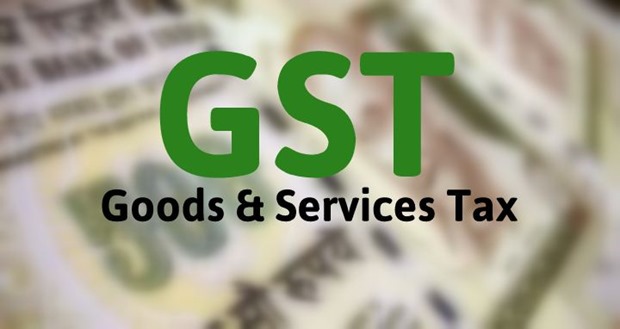Lok Sabha Passes GST, Biggest Reform Since 1947 May Boost GDP By 2%

Lok Sabha finally passed the much awaited Goods & Services Tax (GST) Bill, which has been pending since last 12 years. 352 MPs voted for the bill, whereas 37 voted against this bill, which has been hailed as India’s biggest tax reform since Independence.
Although main opposition party Congress stages a walkout during the voting, it is expected that they will support the bill when its introduced in the Rajya Sabha. Additionally, more than 50% of 29 states of India should approve this bill to make it final.
As per analysts, once the new GST protocol is implemented across India, it can boost growth of our GDP to the tune of 1.5-2 percentage points.
What is GST?
GST will implement a single tax for all goods and services sold in India, replacing several layers of taxes which are implemented by various states. Hence, taxes such as excise, service tax, state VAT, entry tax, octroi and other state level levies would be replaced with one single GST, which would be applicable to all the states of India.
In fact, tax specialists are stating that the whole regime of indirect taxes across the nation would drastically change, paving way for more investments and more inflow of foreign investors in the country.
In other words, it’s a One Nation One Tax system, which would be uniform all over the country.
Finance Minister Arun Jaitley said in the Parliament during the voting of GST bill: “The whole country, which is one-sixth of the world’s population, would become a single market, and, therefore, it would give a necessary fillip as far as trade is concerned,”
But, It Has Some Major Flaws..
Although analysts and tax experts have hailed this bill as one of the most important tax reform ever introduced in the country, there are some major flaws which needs further retrospection and debate.
No wonder it took 12 years for this bill to get cleared in the Lok Sabha!
– This bill proposes a tax rate of 27% (a number which is much debated) on all goods and services sold in the country. This is much higher than the global average of 16.4%. Although Jaitley himself have told the law-makers that 27% is much too high (and said it should be somewhere around 18%), there are some states which are demanding even more tax, considering their monopoly on some specific goods such as tobacco in West Bengal or silk clothing products in Tamil Nadu.
– GST will not cover alcohol; which has been opposed by several law makers. Additionally, petroleum products would be taxed separately (initially), which can disturb the balance of commodities produced and consumed. Transport dependent products (and services in some cases) can be inappropriately taxed, leading to shortening of tax base and encouraging black market practice.
– GST would be levied on the buyers or in those places where the goods are being consumed. Hence, states which are manufacturing powerhouse such as Maharashtra, Gujarat and Tamil Nadu will suffer with low tax income compared to those states which are heavy in consumption such as Uttar Pradesh, Bihar and Orissa. Although Jaitley has assured that for the first 5 years from the implementation of GST, these states would be compensated, there exist some severe differences (even if some of these states are ruled by NDA/BJP).
– As per the proposed structure in GST for compensating, the states which are losing out will be granted 100% compensation in the first 3 years, 75% in the 4th year and 50% in the 5th year. But what will happen if even after 5 years, these states are not able to make profits from their own goods and services? This question was actually asked by AIADMK leader M Thambidurai
– Manufacturing states, which are losing out in tax revenues post GST will be allowed to charge 1% extra tax for balancing the loss. Other non-manufacturing states may oppose this move as well
There is a tough road ahead for the GST Bill to be passed, which was first introduced by P Chidambaram in 2007-08. First Rajya Sabha needs to pass this bill, where NDA is in minority; atleast 50% of all states needs to clear this bill which can consume much time as state elections are due next year in several states; a special GST council will be formulated which will again review the tax structure, and recommend changes.
Arun Jaitley has proposed April 1, 2016 as the operational date for the new Goods and Services Tax structure.
